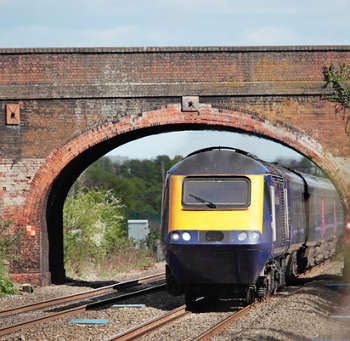Councils have been urged to take a balanced approach when Network Rail construction works affect their highways, after one authority fined the infrastructure owner for over-runs on bridge reconstruction schemes.

Some rail bridges have to be raised for electrification
Newport City Council authority is using Section 74 of the New Roads and Street Works Act 1991 to fine Network Rail £2,750 for every additional working day when traffic is disrupted on the Cardiff Road and Somerton Road bridges.
Reconstruction of both began last autumn, raising the decks to prepare for electrification of the Great Western main line from London to Cardiff. Network Rail said bad weather, drainage difficulties and vandalism affected its schedules. Full reopening of both roads was deferred to late June.
After that deadline was also missed, Ray Truman, Newport’s cabinet member for environment, sustainability and transport, said the delays were unacceptable. ‘Network Rail is treating Newport with contempt if it thinks it can disregard agreements and ignore deadlines,’ he said.
‘We have the power to fine Network Rail and we will do everything in our power to ensure we send a strong message to Network Rail that we won’t stand for this.’
Highway authorities in many other areas may encounter similar issues as Network Rail prepares to electrify other railways, including the North TransPennine and the Midland main lines.
Alasdair Reisner, chief executive of the Civil Engineering Contractors’ Association, said: ‘There are balances to be dealt with here.
‘Certainly the financial driver will be important, to try to get things back on programme, but our priority has to be the safety of people working on the rail network. There’s an appropriate regime in place for the management of work. I wouldn’t want that regime to fall foul of pushing things through more quickly.
‘If you’re a local authority and your residents are seeing significant delays [on the roads], it’s vital that you act in their interests. There needs to be some balance struck between that challenge and the challenges of delivering a fundamental improvement to the rail network.
‘The end outcome that the general public want is a smooth transition towards a better service for rail users.’
Register now for full access
Register just once to get unrestricted, real-time coverage of the issues and challenges facing UK transport and highways engineers.
Full website content includes the latest news, exclusive commentary from leading industry figures and detailed topical analysis of the highways, transportation, environment and place-shaping sectors.
Use the link below to register your details for full, free access.
Already a registered? Login